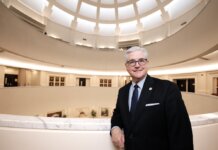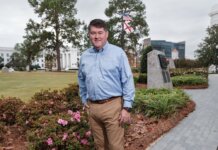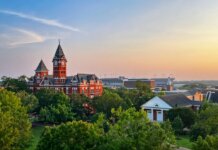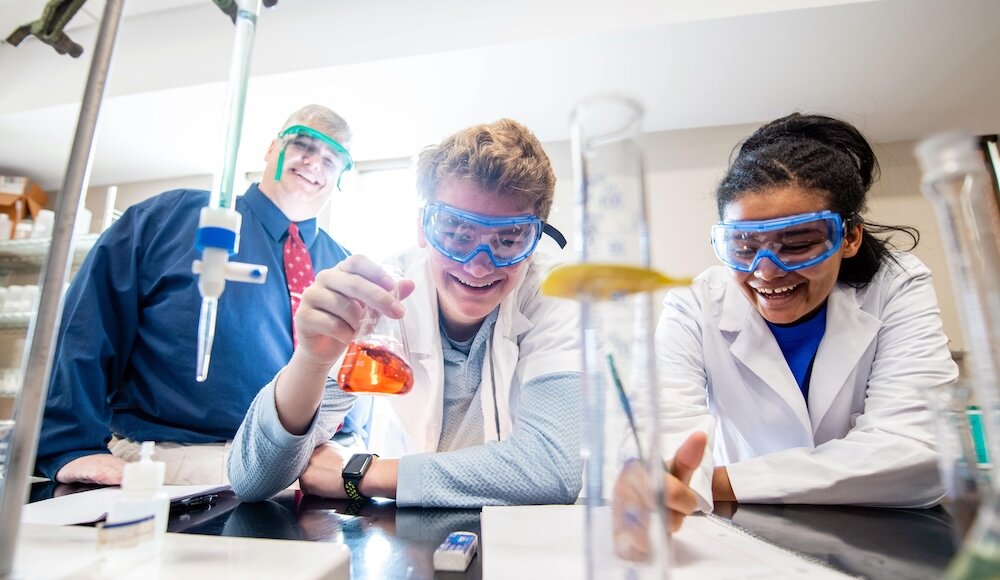
It may surprise the rest of the country to hear that Alabama is in the forefront of teaching high-school kids the engineering, health care and cybertech skills the workforce so desperately needs.
In Mobile, students drill down on math and science. In Huntsville, they tackle advanced math and cyber security. A school opening next year in Demopolis will funnel trained health care workers into a constantly needy field.
And for the arts-focused student, a fine-arts school in Birmingham has provided elite training for decades.
STEM in Mobile
The Alabama School of Mathematics and Science in Mobile has just under 300 students, says Steven M. Floyd, ASMS recruitment and communications coordinator. As Alabama’s only 100% residential high school, its capacity is limited by the number of rooms and bed spaces in residence halls.
“ASMS is a public high school for any student in Alabama who is motivated to work hard and shows dedication to learning,” says Floyd.
Sophomores, juniors and seniors from all 67 counties in Alabama are eligible to attend. Students apply during their freshman and sophomore years.
“Currently, we have students enrolled from 57 of the 67 counties,” Floyd says. “We also find that ASMS students tend to come from rural and underserved areas of the state. Fifty-eight percent of our students are eligible for free and reduced lunch.”
The principle of providing a “living-learning” atmosphere in a safe environment has guided the school since its inception in 1989.
“Our tuition-free boarding school model removes economic and geographic barriers to education for Alabama students,” says Floyd.
Because students live on campus, they learn and have support around the clock.
“Even after school hours, our campus is full of students studying together, meeting faculty members, tutoring one another, engaging in leadership training, participating in life skills programs, doing mock interviews and having fun,” he says.
Campus life teaches responsibility like organizing cleaning schedules or vacuuming classrooms. Students do their own laundry, wake themselves, manage academic and social time and adjust to living away from their families.
“As a result, ASMS students are more prepared for the independence and responsibility that comes with living and learning away from home in college,” says Floyd.
ASMS offers more than 200 courses, many offering college credit. Most instructors have doctorate degrees or previously taught at prestigious universities.
Three-fourths of graduates attend colleges and universities in Alabama. Others enroll at elite institutions such as Harvard, Yale, MIT or Stanford. Roughly 65% of ASMS alumni are still living and working in Alabama, Floyd says, and two-thirds of the more than 3,000 alumni are in STEM fields.
Cyber skills in Huntsville
The Alabama School of Cyber Technology and Engineering in Huntsville is the nation’s only high school focused on integrating cyber technology and engineering into all academic disciplines. ASCTE is a public, residential magnet school where tuition is free.
Founded in 2018 and located in Cummings Research Park, the school opened its doors to 70 freshmen and sophomore students in August of 2020.
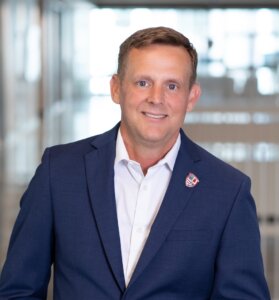
Business leaders saw a need for cyber training in workforce development at least 18 years ago, says ASCTE President Matt Massey. They pitched the idea to the governor and other elected officials.
“That’s the need that the state has, and the nation has,” says Massey. “Alabama stakeholders had the foresight of getting ahead of the game and the state government got behind it to support it as well.”
Because Huntsville hosts a National Cyber Summit with the National Cyber Security Foundation, Massey says supporters “felt like it would be a good ecosystem for the school to flourish.”
Students come from all over Alabama, representing about 90 cities and towns.
“These kids are getting an opportunity at an elite kind of educational level that really fits what they’re looking for,” says Massey.
“Many are graduating with certifications in security and network, like adult-level certifications,” he adds. “We want them to be able to take a job, start a career or go to college.”
Grades count toward acceptance but so do less obvious things like attendance and a willingness to collaborate.
“We’re looking for students that go beyond what the normal classroom provides to engage in STEM, whether it’s working on computers or working on cars,” he says.
They study math, physics, introduction to cyber, computer science, biotechnology, trigonometry, calculus, physics and offensive security. Seventeen students graduated in the first year, 65 in the second. Most stay in Alabama.
“We’ve got students in Georgetown, and at Harvard, and at Tufts as well,” Massey says. “In-state schools recruit them really hard.”
Many businesses hire ASCTE graduates to work remotely while they’re still in college, he says.
They don’t emphasize engineering and exclude everything else.
“Our thing is that everybody needs cybersecurity, whether it’s in finance or in health or in government,” Massey says. “We try to expose our students to a lot of different fields. It may be medical; it may be financial. We try not to pigeonhole a 15-year-old into deciding what they’re going to do the rest of their life.”
The school has about 360 students – girls and boys on separate floors. The next phase would be a girls’ dorm.
“It’s really going to come down to industry telling the state, ‘Hey, we need more graduates,’” Massey says. “We have more applications than we have rooms.”
Marengo County health care
The Alabama School of Healthcare Sciences is expected to open in fall 2026 in Demopolis. Gov. Kay Ivey announced the idea in her State of the State address in February 2023 and signed the authorizing bill in May 2024.
This February, Dr. James “Jimmy” Martin, most recent superintendent of schools in Pell City, was named ASHS president.
The curriculum is still in the works as hospitals provide input, says spokesperson Jonathan McElvy. Fundraising continues while architects work on the design phase.
The freshman class is expected to have 100 students, with a maximum of 400 in grades 9-12 as the school grows.
The curriculum is the first of its kind and expected to serve as a national model.
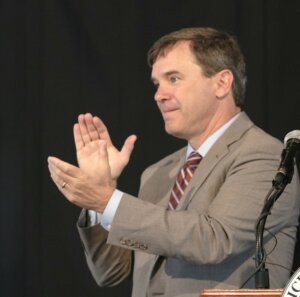
Students will receive exposure to various health care opportunities and have access to internships and permanent jobs with statewide hospitals and clinics. The goal is to address rural healthcare disparities across the state and reduce worker shortages.
The curriculum will be built on a work-based learning model tied to clinical opportunities at Whitfield Regional Hospital and area nursing homes and clinics, explains Rob Pearson, interim president of the ASHS Foundation.
Students will begin a health care-focused curriculum in the ninth grade, says Pearson, and “begin to understand concepts unique to health care while achieving the core credits required for a high school diploma.”
By junior year, students will start certificate programs through dual enrollment with higher education providers while they work and learn inside the hospital.
“All of our graduates will be work-ready with certificates that place them in higher-paying jobs than are available through traditional high schools,” Pearson says. “Most will have associate degrees and will have the opportunity to advance into a four-year program already two years ahead.”

Arts Abound As Well
Two Alabama high schools focus on science, math and engineering. A new one will teach health care workers. Meanwhile, a downtown Birmingham school has specialized in elite arts training for decades.
Alabama School of Fine Arts is a state-funded, tuition-free public school that provides intensive education in the arts, plus math and science to students in grades 7 through 12.
“ASFA is for students who strive for excellence in the arts and sciences in one of six specialty areas: creative writing, dance, math-science, music, theatre arts and visual arts,” explains spokesperson Katie Roach.
In the 1950s and ’60s, Birmingham arts advocates urged state leaders to create a school for students interested in ballet and music.
Gov. Lurleen Wallace responded in 1967 with a proclamation for a pilot program and start-up grant of $10,000. In 1971, the Alabama Legislature passed a resolution establishing the school with a board of directors appointed by the State Board of Education.
Students spend their mornings on general academic classwork, then focus on developing their unique voice within their chosen discipline.
Students apply for admission. The 60 graduates of the Class of 2024 were offered more than $17.3 million in college scholarships, and 90% earned merit scholarships.
“Hunger Games” author Suzanne Collins attended for a year. Alumnus Rachel Lockhart appeared on Broadway and is touring in the Michael Jackson musical.
“ASFA graduates build on the creative habits of mind they develop at ASFA to establish successful careers in a wide array of fields, serving as innovative leaders in business and nonprofits, artists, entrepreneurs and role models for future generations,” says Roach.
With its specialized curriculum, ASFA is considered a sister school to the Alabama School of Math and Science in Mobile, the Alabama School of Cyber Technology and Engineering in Huntsville and the Alabama School of Healthcare Sciences opening in 2026 in Demopolis.
Deborah Storey is a Huntsville-based freelance contributor to Business Alabama.
This article appears in the April 2025 issue of Business Alabama.

